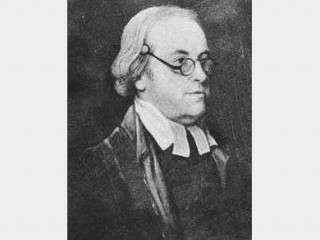
David Hartley biography
Date of birth : 1705-08-30
Date of death : 1757-08-28
Birthplace : Halifax, Yorkshire, England
Nationality : British
Category : Science and Technology
Last modified : 2011-02-17
Credited as : Philosopher, and physician, fathers of physiological psychology
The British physician and philosopher David Hartley is often referred to as one of the fathers of physiological psychology.
David Hartley, the son of a British clergyman, was born on Aug. 30, 1705. He received a private education before attending Cambridge, where he earned a bachelor's degree in 1726 and a master's degree in 1729. Although he intended to follow his father into the clergy, Hartley's disagreement with certain speculative doctrines adhered to by the Church of England prevented him from doing so. It did not, however, prevent him from remaining a lifelong member and defender of the Church or from writing on the subjects of theology and morals, as well as medicine and psychology. Forced to seek a new profession, Hartley turned to medicine and enjoyed considerable success.
Often the major contributions of self-effacing men are known best to those who come after them. Hartley's reputation as one of the founding fathers of the science of psychology rests on his two-volume work, Observations on Man, published, almost unnoticed, in 1749. Volume 2 deals with theology, and though of great importance to its author, it is of historical significance only as an example of the conviction held by many 18th-century scientists that there was no necessary conflict between science and revealed religion. Volume 1 is a systematic description of the emergence of highly complex emotional and mental states out of simple physical sensation.
Hartley's psychology can best be summarized under the twin headings of physiological determinism and associationism. All ideas and emotions are merely the coming together, or association, of various separate ideas which in turn can be traced to individual sensations that have been transmitted along the various nerves by a process of physical vibrations.
Hartley's private life was relatively uneventful: twice married, he fathered a number of children. Though he made little impression on the contemporary world at large, he communicated with many first-rate English minds of his day. In every way a gentleman, he was a kindly and expert doctor, well versed in subjects as diverse as shorthand and poetry and mathematics, devoutly religious, well organized and methodical though neither pedantic nor coldly efficient, and loved and admired by all who knew him. Hartley died at Newark, London, where he had practiced medicine, on Aug. 28, 1757.
















